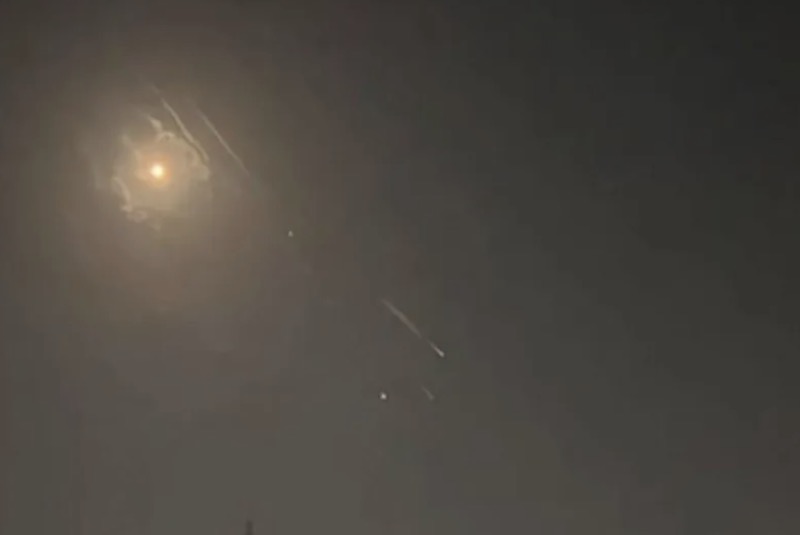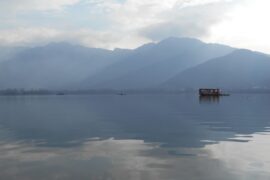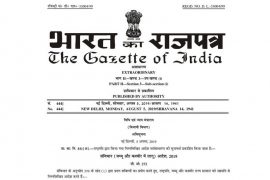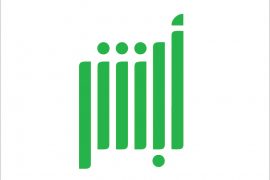On Saturday, 13 April 2024, Iran fired over 300 projectiles, including 170 drones, 30 cruise missiles and 120 ballistic missiles, at Israel in retaliation for a suspected Israeli strike on the Iranian consulate in Damascus on 1 April, killing several senior Iranian military officials. Iran’s retaliatory action has cast a long shadow of war in the Middle East.
Iran’s attack was designed to stretch the Israeli defence systems. Iran fired Shahbab-1 and Fatheh-110 missiles with a range of 300 kilometres; Shahab 2 and Fatheh 313 with a range of 500 kilometres; Shahab 3 missiles with 1000 kilometre range; and Sajjil-1/2 with a 2000 kilometre range. Some of the missiles were fired from Iran. Some were fired from Iraq. Some were fired from Syria. Others were fired from the Southern chip of the Red Sea, from the Houthis, and some were fired by Hezbollah, Iran’s proxy in Lebanon.
The Chief of Staff of the Iranian armed forces, General Mohammed Bagheri, said Iran took the step because Israel ‘crossed the red line’ by targeting the Iranian consulate in Damascus. However, he said that the ‘mission is accomplished and the operation is over and we have no intentions of going further,’ but warned that if Israel opts to ‘commit any act against us, be it on our territory or our compounds in Syria and elsewhere, the next operation will be larger.’
Iran’s military attack did not have a serious impact on Israel. Israel’s air defence systems intercepted 99 per cent of the missiles. A seven-year-old Bedouin girl was critically injured by a missile shrapnel outside Arad, South of the country. Moreover, the Nevatim Air Force base suffered minor damage. Though the damage was limited, symbolically, the damage to the airbase in the Negev desert is significant for Iran because two weeks ago, Israeli fighter jets that bombed the Iranian consulate in Damascus flew out of the airbase. Reportedly, it cost Israel $1.3 billion to intercept Iran’s missiles.
In the context of the Israel-Hamas war, in the past six months, Israel’s armed forces exchanged fire with Hezbollah in Lebanon; Iranian proxies in Iraq, Syria and Yemen have also fired missiles and drones at Israel. However, despite prolonged animosity, the two nations avoided direct confrontation; they never exchanged fire from their own soil.
Iran’s first direct ‘multi-layered attack’ on Israeli military bases, ostensibly to defend its ‘sovereignty and territorial integrity,’ ‘shatters the previous conflict threshold…It is the beginning of a new era in which Iran is willing to respond directly to Israeli attacks and, in doing so, risk retaliation against the Iranian homeland,’ said Jonathan Panikoff, director of Atlantic Council’s Scowcroft Middle East Security Initiative.
The attack raised alarm bells across the world. It has polarised the world powers. The United Nations Secretary-General, Antonio Guterres, said he was ‘deeply alarmed about the very real danger of a devastating region-wide escalation.’ Based on Israel’s request, the United Nations Security Council scheduled a meeting to discuss the attack.
Many in the international community have condemned Iran’s attack.
Joe Biden, the President of the United States, condemned Iran’s ‘unprecedented’ attack and said that US aircraft and two US destroyers, one of which was sent last week, helped intercept the missiles. Reiterating ‘Ironclad’ support for Israel, Biden convened leaders of other G7 nations’ to co-ordinate a united diplomatic response to Iran’s brazen attack.’ The leaders of G7 ‘unequivocally’ condemned in the ‘strongest terms Iran’s direct and unprecedented attack against Israel,’ expressed ‘full solidarity and support to Israel and its people’ and reaffirmed their commitment towards its security.
The UK and France also helped ward off Iran’s attack. The UK deployed RAF jets and refuelling tankers to help intercept drone attacks. British Prime Minister Rishi Sunak condemned Iran’s ‘reckless attack against Israel’ in the ‘strongest terms’ and said ‘we stand by the security of Israel.’ Similarly, Olaf Scholz of Germany said, ‘The attack on Israeli territory that Iran launched tonight is unjustifiable and highly irresponsible. Iran risks a further escalation in the region. Germany stands by Israel.’
Expressing concern over the escalating hostilities between Iran and Israel, India’s Ministry of External Affairs called for an ‘immediate de-escalation, exercise of restraint, stepping back from violence, and return to the path of diplomacy.’
Israel’s president Issac Herzog called Iran’s attack a ‘declaration of war’ and said ‘all options are being considered against Iran.’ He said Israel ‘has undertaken all necessary steps to block this attack,’ a ‘flagrant violation of all the rules of international law.’ He called on the world to ‘face this empire of evil in Teheran’ and make it clear to the Iranian regime that this is unacceptable.’
Iran’s attack is a significant humiliation for Israel. However, Joe Biden urged Netanyahu to exercise restraint and said that the United States would not take part in an Israeli counter-offensive against Iran. Domestically, Netanyahu is under pressure, especially from members of ultra-right wing parties, to take ‘decisive action’ against Iran. Moreover, Netanyahu’s low popularity ratings could force him take steps that could help him gain a tighter grip on power.
-30-
Copyright©Madras Courier, All Rights Reserved. You may share using our article tools. Please don't cut articles from madrascourier.com and redistribute by email, post to the web, mobile phone or social media.Please send in your feed back and comments to [email protected]











